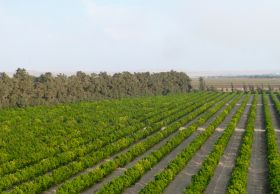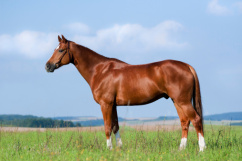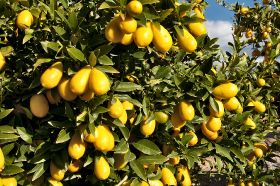Industry News
Ex-Tesco finance director Andrew Higginson will take over on 1 October when Sir Ian Gibson retires
Morrisons has appointed Tesco veteran Andrew Higginson as its next chairman.

Higginson will take over on 1 October following the retirement of Sir Ian Gibson, amid speculation that his arrival could pose problems for the beleaguered current chief executive, Dalton Philips.
Higginson spent 15 years on the Tesco board during years of rapid growth, as finance director and later as chief executive of the retailer’s online and bank divisions. He left in 2012, shortly after previous Tesco boss Sir Terry Leahy.
He is currently chairman of home shopping group N Brown. On Tuesday (29 July) he stepped down as chairman of the recently floated Poundland when his new role at Morrisons was announced.
Poundland’s senior independent director and former Sainsbury’s finance chief Darren Shapland replaces him.
Higginson joins Morrisons amid a continuing sales slump. The latest Kantar Worldpanel data shows that Morrisons now has an 11% share of the market, down from 11.6% a year ago.
It posted an annual loss of £176 million in the year to February, and in June announced it was cutting 2,600 jobs as part of a drive to modernise the way its stores were managed.
Morrisons has said it is investing £1 billion over three years as it cuts prices to compete, and its online shopping platform is growing in size and scale.
Moy Park has announced its grower expansion programme in Northern Ireland has been a success, with over 250 new poultry houses planned for completion by the end of 2015.
Moy Park explained that it had embarked on the programme, which was launched at the end of last year, as part of the business’ plan to grow its fresh, locally farmed chicken supply for its UK and Ireland customers. It reported that 90 houses were either built or nearing completion.
Alan Gibson, Moy Park director, said: “This expansion is in response to what we believe is a long-term demand from both retailers and consumers for fresh, locally sourced poultry. We currently work with 800 of the very best poultry farmers and we are pleased with the response we’ve had to our call for growers in Northern Ireland to expand poultry production.
“We currently have over 250 new poultry houses in the programme but we are still looking for growers in proximity to our two main primary processing sites in Ballymena, Co Antrim and Dungannon, Co Tyrone, who want to expand or move into poultry production.”
Moy Park said its expansion programme has included a recently announced £170m investment and the creation of 628 jobs in Northern Ireland. It appealed to farmers to continue to help expansion: “The growth opportunity is open to both existing poultry growers and suitable new farmers in Northern Ireland. Moy Park is inviting those interested to come forward to find out how they could qualify for the programme to build new broiler and breeder houses and become part of one of Europe’s most successful poultry businesses.
The scheme sees a Moy Park Agri Team helping farmers to invest and expand in their business, as well providing help and guidance for new farmers starting out in the industry. As part of this, the company was instrumental in getting a government Agri-Food Loan Scheme up and running.
Kantar data shows that Aldi’s 32% growth rate in last 12 weeks has lifted its market share to 4.8% – just behind Waitrose’s 4.9%
Aldi’s share of the UK grocery market is nearly neck and neck with Waitrose.

The discounter’s rise is highlighted by the latest grocery share figures from Kantar Worldpanel for the 12 weeks ending 20 July 2014.
Aldi’s 32% growth rate has lifted its market share to 4.8% – a new record for the retailer, and one that means it has nearly caught up with Waitrose on 4.9%.
Nevertheless, Ed Garner, director at Kantar Worldpanel, noted: “Waitrose has continued to resist pressure from the competition, testament to its policy of maximum differentiation, and has grown sales by 3.4%. This figure is well above the market average and thereby has lifted its market share.”
In the period the data covers, Lidl sales grew by nearly 20%, and it has held onto its record share of 3.6%.
Among the big four grocers, both Asda and Sainsbury’s have held onto their market shares of 17% and 16.6% respectively.
Conversely, Tesco and Morrisons have recorded losses with sales for both outlets declining by 3.8% compared with this time last year.
Iceland has posted a small drop in sales, its first since 2005, but has retained its 2% market share.
Producer association ProCitrus says shipments to all markets will rise as a result
Peruvian citrus exports are set to reach 115,000 tonnes this year, an increase on 20% on 2013, according to citrus growers association ProCitrus. This is double the increase originally forecast by the association earlier this year.
ProCitrus CEO Sergio del Castillo said the estimate was revised in the light of more accurate estimates being available on output, fruit sizes and export volumes.

“ProCitrus makes an estimate after the physiological fall of the various varieties in December, but sometimes these estimates are somewhat imprecise and we have to wait until April or May to see how the fruit evolves after the summer,” he told Andina.
Del Castillo added that the higher volume would mean more fruit being shipped to all markets.
The sharp rise in Peruvian citrus exports in the first six months of 2014 is partly due to the increase in shipments of early season varieties. “Last season, domestic prices were higher during the early part of the season than on international markets, so many growers channelled their production to the local market,” del Castillo, told Fruitnet. “This year has seen a significant rise in output which, coupled with the earlier than usual start to the season, has resulted in far higher volumes going for export.”
Peru is the fourth biggest citrus producer in the Southern Hemisphere, with some 60,000ha generating more than 1m tonnes annually. Of this, only around one-tenth goes for export, the rest being consumed domestically both as juice and fresh.
Europe and Canada are the biggest export markets, however companies are now looking to increase mandarin shipments to Asia. “We’re hopeful that in 2015 the phytosanitary protocols will be established for shipments to Japan,” del Castillo said.
No horsemeat has been found in the latest round of industry and EU meat product testing, according to a Food Standards (FSA) report.

Since 2013, the FSA, industry and the European Commission have been working together in a programme of horsemeat testing and, in this most recent round, no horse DNA has been found in products at or above the 1% threshold.
In the wake of last year’s scandal, regular tests have been checking that meat products supplied into or on sale in the UK do not contain horsemeat DNA and are correctly labelled.
The FSA’s fourth quarterly report showed that no products tested positive for horse – a total of 5,861 products tested negative, of which 3,395 were beef products.
The FSA said a total of 50,876 results for horsemeat DNA in meat products had been submitted by industry to the FSA since 15 February 2013. Of these, 47 were positive samples. No new positive results have been reported since the first quarterly report in June 2013.
On top of this, the UK also participated in the second round of EU testing for horsemeat in processed beef products. No positive traces were found in the 150 samples taken by 24 local authorities.
While supermarkets often charge £3 or £4 for each home delivery, the actual cost to them is £20, a Channel 4 show has found
Supermarkets are losing £100 million a year propping up their online delivery services.
While supermarkets often charge £3 or £4 for each home delivery, the actual cost to them is £20, researchers working on a show set to air tonight on Channel 4 found.

Retail analyst Dave McCarthy tells Dispatches: “The transition from in-store retailing to online retailing in the grocery market is losing the industry £100 million profit per annum.
“When a customer switches from shopping in a store to shopping online, it is a lot less profitable for the retailer, which suffers a double whammy. The store loses profits from the lost sales and, importantly, a contribution to fixed costs such as rates, energy and the store manager’s wages.
“Discount supermarkets are growing at twice the rate of online shopping, yet the big four keep investing and chasing online custom.
“How much trade would these supermarkets lose if they stopped online? The answer is not as much as they are losing out to the growth of discount supermarkets.”
Tesco, Asda, Sainsbury’s and Morrisons have seen combined lost sales of more than £3 billion in recent years, and have slashed thousands of jobs.
The 2 Sisters Food Group has called allegations printed in The Guardian about campylobacter failings “untrue, misleading and inaccurate”.
Felicity Lawrence’s ‘Poultry Industry’s dirty secret’, published in The Guardian yesterday (24 July), claimed that undercover footage, photographic evidence and information from a whistleblower showed 2 Sisters and Faccenda breaking biosecurity rules that were in place to prevent campylobacter contamination.

The article said the companies, which supply poultry meat to Tesco, Sainsbury’s, Asda and Marks & Spencer, among others, regularly flouted hygiene standards. It reported incidents of poor practice, such as factory floors flooded with chicken guts and carcases coming into contact with workers’ boots before being returned to the production line.
However, a 2 Sisters response read: “The allegations about our processing sites at Scunthorpe and Llangefni made in the above article concerning our business and our management of campylobacter are untrue, misleading and inaccurate. There is no campylobacter contamination or problems at our sites, as confirmed by multiple independent external audits and our own rigorous testing.
“We strongly deny and defend ourselves against these allegations. Our company’s heritage is steeped in the poultry sector. We are extremely proud of this heritage and our excellent track record as a poultry processor, and we will remain so. We are doing more than any other business in addressing the key issues our sector is facing and we are leading the way in establishing and enforcing industry best practice.
”The Guardian piece reported that a number of major retailers had now launched emergency investigations into their chicken suppliers. A spokesperson from the British Retail Consortium said: “Food safety is a key priority for retailers and the allegations of poor practice are concerning. These are currently being investigated by the specific retailers involved. All major retailers continue to work collaboratively with their suppliers and government to find solutions to reduce the prevalence of campylobacter.”
Faccenda has also denied the accusations and said it worked hard to improve food safety: “At Faccenda Foods, we recognise the food safety challenge posed by campylobacter and the concerns of consumers in this area. Through our Campylobacter Action Plan, Faccenda Foods continues to invest significantly across the whole supply chain to address this top priority issue. Our investment in current projects to tackle campylobacter is in excess of £1m.”
A reduction in EU imports from Turkey, Argentina and South Africa meant strong demand for Spanish fruit
A bumper harvest, coupled with lower volumes arriving from Southern Hemisphere suppliers and Turkey, helped push Spanish lemon exports to a new record this season. According to the latest figures from lemon and grapefruit interprofessional Ailimpo, shipments increased by 7% to 560,000 tonnes during the 2013/14 campaign.

With Argentine production down by 50%, and South African shipments hit by stricter phytosanitary controls in the wake of the citrus black spot outbreak, demand across all European markets was buoyant. As a result of the strong prices, Ailimpo said it had been a profitable year for growers.
Shipments to the UK, France and Italy registered double-digit growth, rising by 25%, 16% and 13% respectively. In total, the European Union absorbs around 90% of Spain’s export total. Ailimpo said sendings to non-EU markets had also risen sharply, notably in Canada and Brazil.
A decision by Turkey to target a greater share of its export volume to eastern markets such as Russia and Ukraine also boosted demand for Spanish lemons this year.
Lemon production reached 970,000 tonnes this season, an 18% increase on last year’s total. Fino accounted for 72% of this total and Verna for the remaining 28%.
Ailimpo said investments in improved farming techniques had resulted in higher yields and better quality this season.

A young Devon farmer is preparing to embark on a 39-day tour of Europe to campaign for clearer poultry labelling – and is doing it dressed as a chicken.
Tamsin French will be costumed as a chicken called ‘Rosa’ and will travel through 21 EU member states in 39 days, which is apparently the average lifespan of an intensively farmed meat chicken. Rosa the chicken is calling for clear and mandatory labelling so that consumers can see how their chicken has been kept. The 39Days4Rosa tour is taking place as the European Commission reviews poultry meat labelling this summer.
French’s family farms a 22,000 strong, Freedom Food-assured broiler flock in Devon. She said: “Our free-range chickens live for 56 days, and from the moment they’re old enough to go outside, they can range through tree-covered, landscaped fields where they can express natural habitual behaviour. It’s important that consumers can accurately and easily identify the farm system used to rear their chicken meat. The labelling term ‘free range’ accurately reflects the life of our free-range chickens.”
She will be joined on the trip by Johanna Olsson, an Animal Science student from Berkshire, and Sam White, an animal welfare campaigner from Essex.